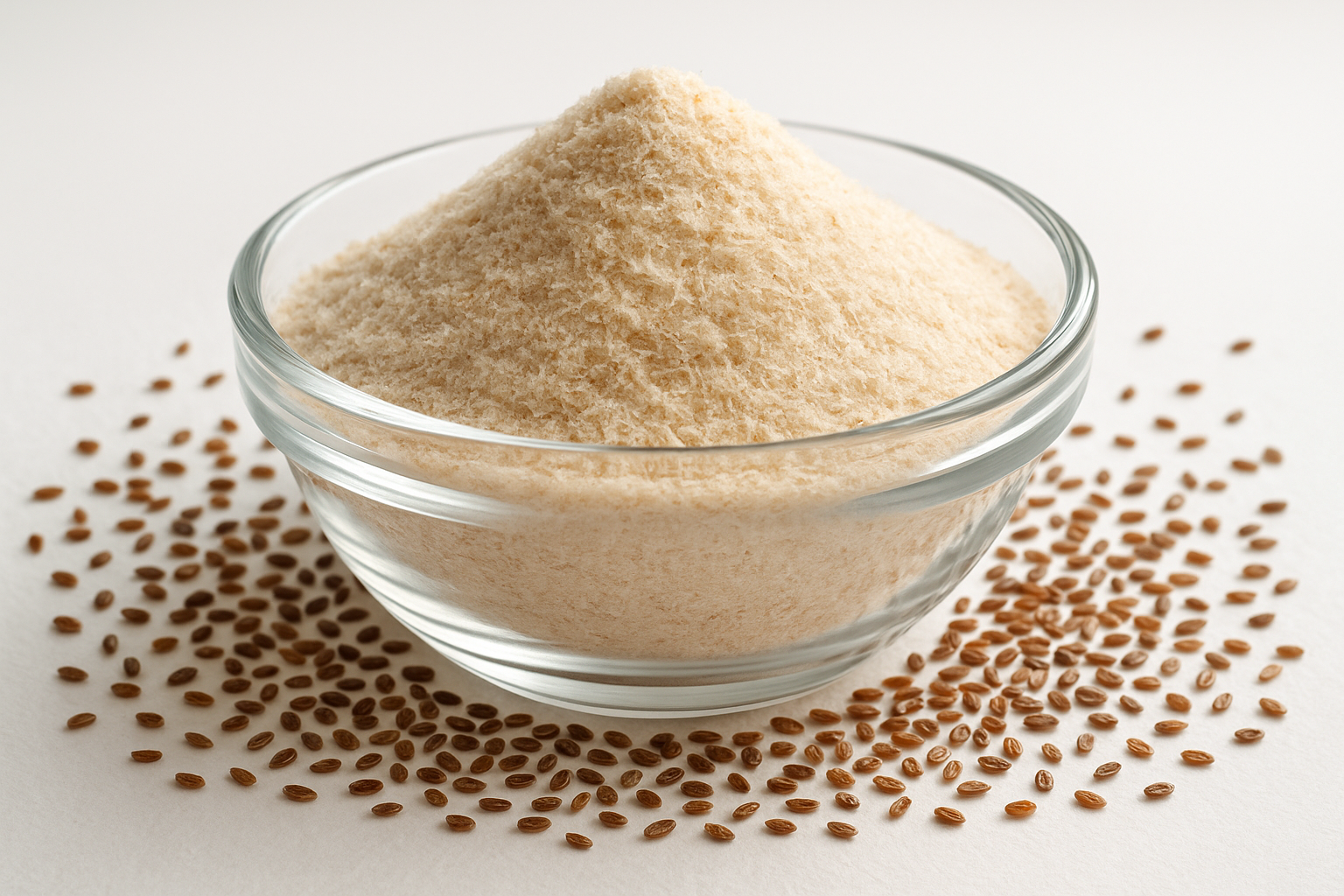
Psyllium fiber
What is it?
Psyllium comes from the seed coat of the Plantago ovata (flea seed). It is a completely soluble fiber that has been used for centuries in Ayurvedic and Western herbal medicine. Unlike grains, psyllium contains few calories or digestible carbohydrates: it consists almost entirely of fiber.
Nutritional value & function
-
Up to 85% soluble fiber .
-
Attracts water and forms a gel in the intestines.
-
Works as a prebiotic: food for beneficial intestinal bacteria.
-
Slows the absorption of sugars, keeping blood sugar levels more stable.
-
Gives a feeling of fullness without extra calories.
Scientific evidence
Research shows that psyllium:
-
Improves intestinal transit : it increases the volume of stool and promotes regular bowel movements.
-
Cholesterol lowers : 10–12 g of psyllium daily can significantly reduce LDL cholesterol.
-
Stabilizes blood sugar : Psyllium helps to moderate postprandial (after-meal) blood sugar spikes, especially in people with insulin resistance or type 2 diabetes.
-
Intestinal flora supports : fermentation of psyllium fibres leads to the production of short-chain fatty acids (such as butyrate), which have an anti-inflammatory effect and protect the intestinal wall.
Why we use it
In our mixes psyllium provides:
-
Structure & airiness : it binds water and makes gluten-free dough more elastic.
-
Higher fiber content : ideal for making our products rich in fiber and intestinal friendly.
-
Long-lasting satiety : you feel full for longer after a meal.
Fun fact
The name psyllium comes from the Greek word psylla , meaning "flea." This refers to the small seeds that resemble fleas. Many people therefore call it flea seed.
Sources:
Share

